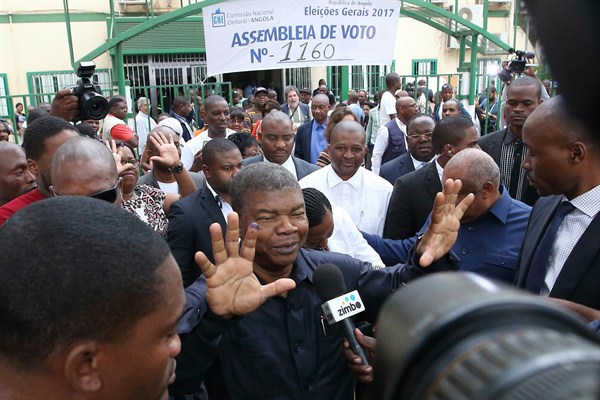Yesterday Angola swore in its first new president in nearly four decades. But how much change did that really represent? Joao Lourenco, who won last month’s election to succeed Jose Eduardo dos Santos, in power since 1979, is from the same party, the Popular Movement for the Liberation of Angola—which dos Santos still heads even after resigning as president. Known as the MPLA, the party has ruled Angola ever since its independence from Portugal in 1975. During its long tenure in power, Angola at least nominally became a democracy, and that was 25 years ago.
The MPLA’s re-election, albeit in a process riddled with irregularities, is a window into a wider debate in Southern Africa: How can post-colonial states move beyond the old political culture and practices of the liberation struggle—and the entrenched, ossified parties that led them—toward a more pluralist political system that reflects the true diversity of these societies? Can they free themselves from the liberation parties?
Angola’s MPLA is hardly unique in its longevity. Frelimo in Mozambique has also been in power for 42 years, ZANU-PF in Zimbabwe for 37 years, SWAPO in Namibia for 28 years, and the African National Congress in South Africa for 23 years. Most younger to middle-aged people in these countries have never known any government other than one led by these ruling parties.

